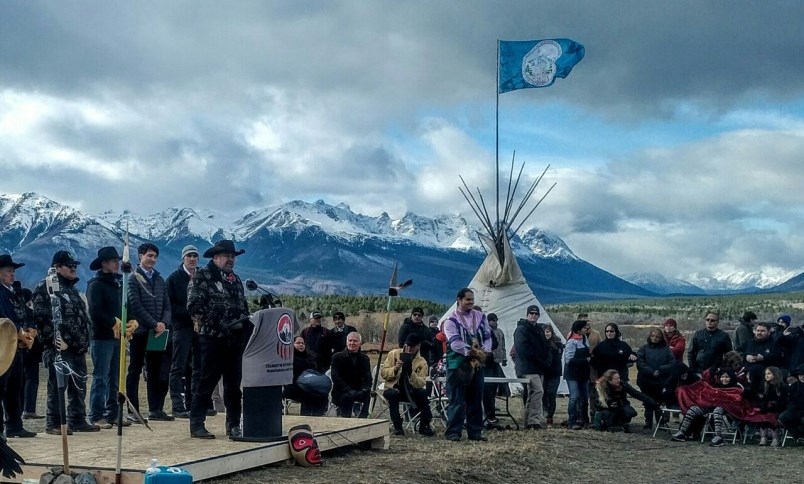Editor:
Re: New West school shouldn't be named after Chief Ahan, Record Letters, March 29
In the early days of the Second World War, Britain was the last European democracy left to face the Nazis. The others had fallen to Hitler's armies or chosen to stay neutral.
Churchill sought to give hope and courage to his people when he said these true words: “Nations that went down fighting rose again, but those who surrendered tamely were finished.”
I think of Churchill's words when I think of the Tsilhqot'in Chief Ahan.
When Ahan and the other Tsilhqot'in chiefs went to war in 1864, their nation was in an even tighter bind than Churchill would face in 1939.
In 1862, a devastating smallpox epidemic, brought to Fort Victoria by an influx of miners from San Francisco seeking Fraser River gold, had swept up the coast and along mountain trade trails into the Tsilhqot'in villages - decimating the population. Gold had been found first in the Fraser Canyon in 1858 and then later in what would become the mining boom town of Barkerville. By 1864, the heavily armed foreign miners had swarmed into the territory along the Fraser River.
When a road crew began clearing a second access into the territory via Bute Inlet and the Homathko River, it set them on a collision course with Ahan and the other chiefs who subsequently went to war to defend their country.
Ahan could not rain down fire bombs on the towns of his opponents as Churchill did. Nor did Ahan and the other chiefs have a vast army at their command. They fought with old muskets, knives and hatchets. Their small army included half-starved women and kids – survivors of smallpox.
Nonetheless, they stood and fought for their country. And when the colonial government got a hold of them through dishonourable means, Ahan and the other chiefs were not treated as leaders of an opposing country come to negotiate the peace. Instead they were hung – a heinous act that B.C. and Canada have now apologized for.
It is no coincidence that the Tsilhqot'in people in a landmark ruling have recently become the first First Nation in B.C. to take back title to a portion of their country. And they are working to get the rest of their country back no matter how long it takes. And it’s also no coincidence that the language of Chief Ahan is still spoken in Tsilhqot'in communities – no small feat when the terrible purpose and impact of the colonial government's residential schools are understood.
It seems Churchill was right – those nations that go down fighting are the first to rise again.
If the Tsilhqot'in would allow us in the old colonial seat of power, New Westminster to name our school after Chief Ahan - a war hero who was unjustly hung in our town - we would be fortunate indeed. We can only hope that they will have mercy on us and allow us to do so. In this way, may we be better able to reflect on the true nature of our past and hope for a better future.
Joe Foy, New Westminster



